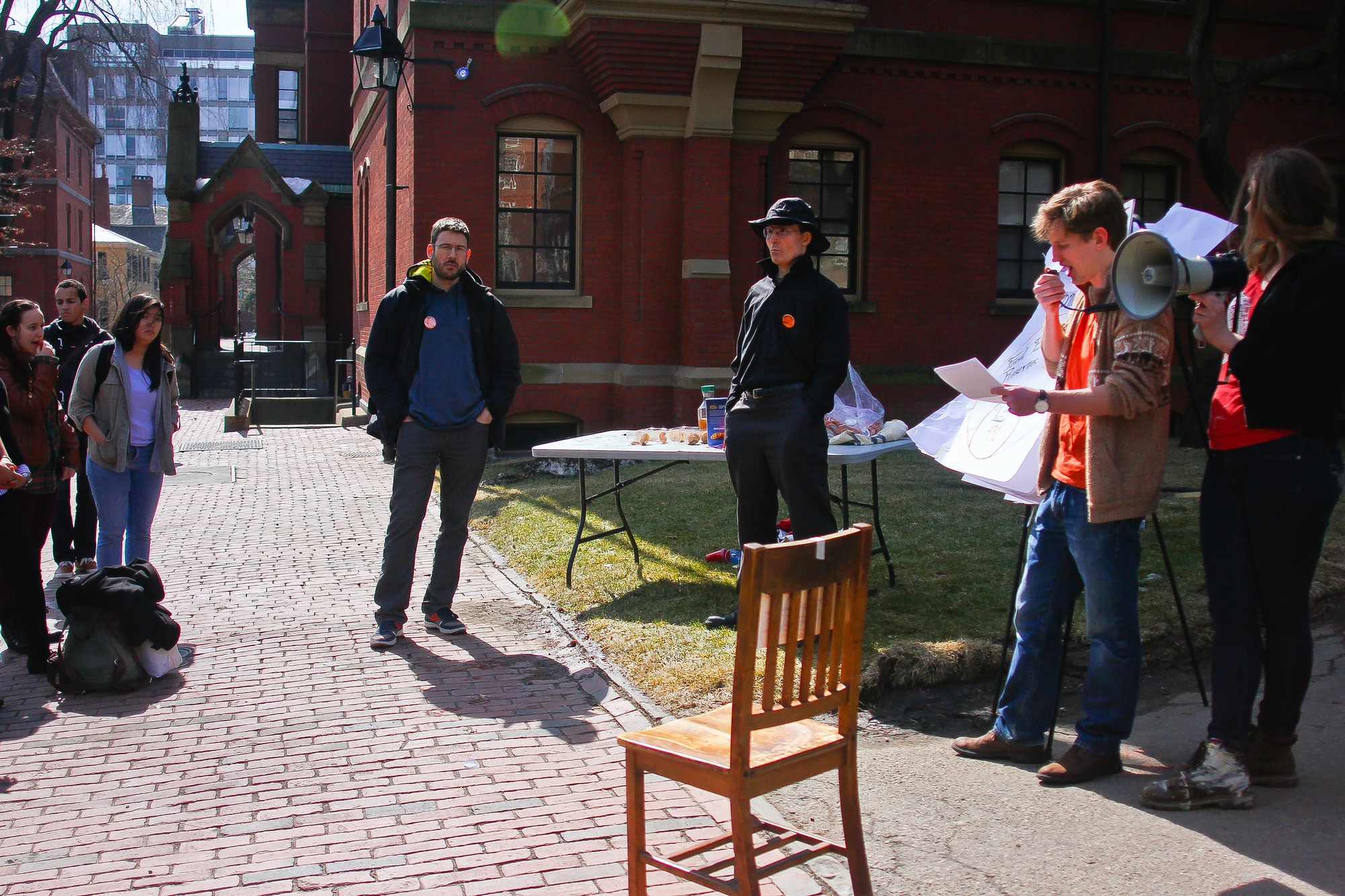
News
Summers Will Not Finish Semester of Teaching as Harvard Investigates Epstein Ties

News
Harvard College Students Report Favoring Divestment from Israel in HUA Survey

News
‘He Should Resign’: Harvard Undergrads Take Hard Line Against Summers Over Epstein Scandal

News
Harvard To Launch New Investigation Into Epstein’s Ties to Summers, Other University Affiliates

News
Harvard Students To Vote on Divestment From Israel in Inaugural HUA Election Survey
Divest Harvard Holds “Teach-Ins” Outside Massachusetts Hall


Students and members of Divest Harvard gathered in front of Massachusetts Hall Tuesday afternoon for a series of “teach-ins” conducted to reveal ways in which they believe the fossil fuel industry creates climate denialism and interferes with clean energy initiatives.
The “teach-ins” were organized by Divest Harvard as a response to President Drew G. Faust’s statement in the organization’s recently published video in which the group’s Student Outreach Co-Chair Alli J. Welton ’15 challenged the University’s stance on divestment. Massachusetts Hall is the home of the University’s central administration and contains Faust’s office.
On Monday, Faust issued an email response to the group, saying that she was disappointed by the way the group handled the video confrontation and reiterating the University’s commitment to sustainability initiatives apart from divestment.
Divest Harvard Faculty Coordinator Benjamin Franta, a graduate student who worked with Welton to organize the sit-ins, said that he believed Faust denied the political power of the fossil fuel industry in the video. He said he found this surprising because the influence of the fossil fuel industry in blocking clean energy initiatives is “well-documented.”
“There has been some dispute on what she actually meant,” Franta said in reference to Faust’s email response. However, he added that based on the video alone, “There’s a clear interpretation of what she meant.”
Franta said that the group would like Faust to “clear this up and actually talk about this important issue.”
The event consisted of three “teach-ins” that covered topics including fossil fuel companies’ expansive carbon reserves, the influence of these companies in financing political campaigns, and statistics of the University’s carbon usage. According to Welton, over the course of the afternoon, over 60 people stopped to listen to the group speak.

Welton and Franta said that fossil fuel companies use lobbying and the legal system to block clean energy measures, arguing that the fossil fuel industry actively fights clean energy rather than simply promoting its own interests.
During the event, Welton and Franta also read statements from leading climate experts and University faculty, including Pennsylvania State University climatologist Michael E. Mann, SEAS Professor of Applied Physics David Keith, and Professor of Biological Oceanography James J. McCarthy.
“The intention [of the “teach-ins”] was to provide some time to learn the truth about what fossil fuel companies are doing,” Welton said after the event.
The event followed several attempts by Divest Harvard to confront the University on the topic of divestment. According to Franta, “The [Harvard] Corporation is not interested in meeting anymore, and so we don’t have a way to engage with them anymore.” The Corporation is the University’s highest governing body.
Welton said that it is time for President Faust to engage with students and the community in a public forum.
“Otherwise we’re going to keep doing what we can to bring together enough sources from our students and faculty and alumni that the administration can’t afford to ignore us anymore,” she said.
Faust did not attend the event.
—Staff writer Kristina D. Lorch can be reached at klorch@college.harvard.edu.
Want to keep up with breaking news? Subscribe to our email newsletter.
